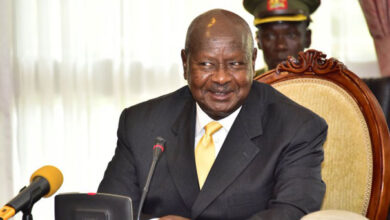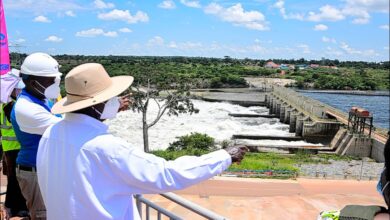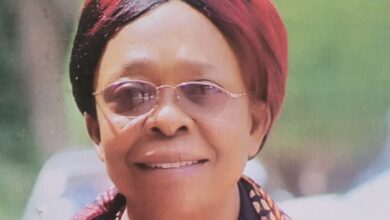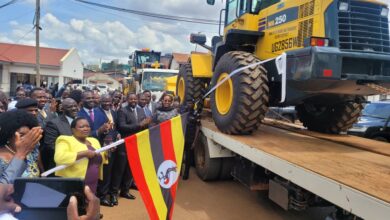What if Museveni retires from the presidency today? Is Uganda ready for a civilian or military leader?
The NRM government has been in power longer than any other past regimes combined together.
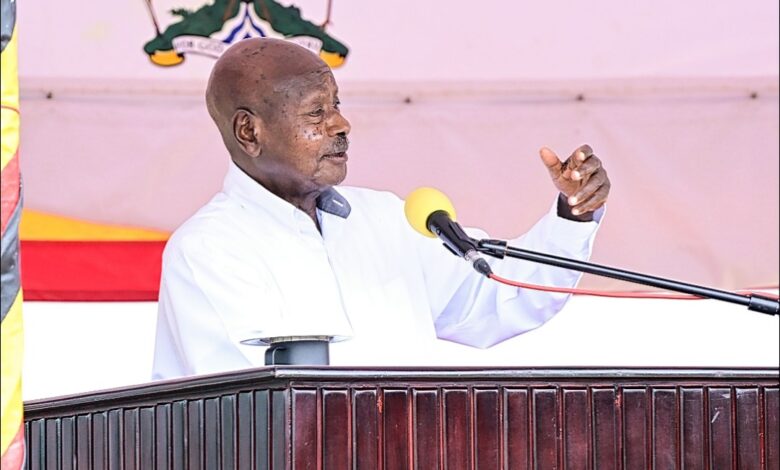
Op-Ed: The political past, present, and future events of any country are interconnected/intertwined. The political history of Uganda as a republic from the time she attained her independence from the British colonial masters has been shaped by a number of factors, such as the existence of the Buganda Kingdom, a monarchical institution that is found and functions within the state;
The internal conflicts that existed between some monarchical institutions like Buganda Kingdom versus Bunyoro Kingdom; the formation of the first political party called Uganda National Congress (UNC) by Ignatius Musaazi; 1962 Prime Minister Obote Apollo Milton received the instruments of power from the British colonialists and represented the Uganda colony when it transited into an Independent Republic;
The deposition and death of His Highness Edward Muteesa I to England;
The 1966 Buganda Crisis and attack on Buganda Kingdom by Colonel Idi Admin on the instruction by His Excellency President Obote Apollo Milton; 1966-1971: Obote, by then Prime Minister under His Highness Edward Muteesa, announced himself as president of the Republic of Uganda after deposing the King to exile in England and also singlehandly abrogated the Uganda Constitution; The 1971 overthrow of His Excellency President Obote Apollo Milton by Colonel Idi Amin Dada;
The 1979 overthrow of His Excellency Field Marshall Idi Amin Dada by the combined forces of Tanzania Peoples Defense Forces (TPDF) and other forces including National Resistance Army (by then called the FRONASA) fighters; 1983 His Excellency Obote’s second capture of state power; 1985 Obote’s second overthrow by the military junta of Brigadiers Bazilio Olara Okello and Tito Okello;
On 26th January 1986, the National Resistance Movement (NRM) government led by His Excellency Yoweri Kaguta Museveni captured state power. The NRM government has been in power longer than any other past regimes combined together.
However, during this period to date, the NRM government has demonstrated an excellent track record of leadership as follows: They have ushered in peace, tranquility, unity, security; stable economic growth; economic liberalization; political pluralism; improvements on the health, education, agriculture, manufacturing, and other sectors; freedom of speech/association/worship; poverty reduction; the fight against corruption; professionalization of the forces (army, prisons, police); harnessed the natural resources (oil, gas, and other minerals); monarchies and cultural institutions, for example, the Buganda, Busoga, Toro, Ankole, Bunyoro, Bukhonzo kingdoms; the cultural institutions include the following, for example, Teso, Alur, Bamba,Bagishu,Bagwere,Acholi,Alur,Lango,Baruli,Basongora etc.
Uganda is now a favorable tourism and investment destination; infrastructural development, to mention but a few. Uganda’s Gross Domestic Product(GDP)like for any other third world developing country is donor-dependent, Highly Indebt Country(HIC) with the external debt now standing at 96 Trillion Uganda shillings ,grappling with a high youth unemployment levels, high poverty levels among its citizens, high to moderate illiteracy levels, hunger and food insecurity in some parts of Northern and North Eastern parts of the Karamoja sub regions where the climate is semi-arid with sparse distribution of rainfall though the country enjoys a bimodal tropical climate in other agriculturally productive parts of the country with fertile arable soils, it is also covered with interlascustrine aquatic and forested ecosystems; climate change induced disasters; the country is also endowed with high biodiversity of flora and fauna in form of national parks, forest reserves,wildlife,birds – which are in essence are tourist attractions and are foreign exchange earners to boost our economy; the booming manufacturing industry to mention but a few.
The National Resistance Movement (NRM) government, from the onset of capturing political power and later conducting elections, has built a robust, resilient political and governance system that can be considered to be the foundation or the bedrock upon which subsequent governments will continue propagating its legacy if the incumbent decides to retire and relinquish political power today or later when that time comes.
The bone of contention is that this situation of political transition of leadership from the incumbent to the next president of the Republic of Uganda must be handled with caution and care and must involve all stakeholders and political players by permitting all the suitable political candidates for the top most position of presidency of the Republic of Uganda to campaign, go through the electoral processes, and be duly elected by the citizens of Uganda. Reciprocal political interference by the state and the incumbent should be avoided at any cost, whereby the process would look like a “dynastic political transition of political power from the incumbent to the next leader” in the event that the former chooses and recommends his son, brother, sister, daughter, relative, or someone with blood relations with him.
The point here is to recommend any other member of the NRM government to take over the helm of power when that time comes. This will foster the universally accepted democratic transition of political power and maintain the legacy of the incumbent government in the new political dispensation in the post-Museveni era.
Contrary to this arrangement, there is a likelihood for the entire country to degenerate and revert back to the chaotic situations that characterized the previous past regimes of the post-independence Uganda of the former Heads of State, Muteesa I, Obote, Amin, Mwanga, Lule, Binaisa, and Okellos, and this implies that all the milestones and political gains that the NRM government has labored to build over time will be washed down the drain. This can be averted by our octogenarian, visionary, charismatic, amiable, Fountain of Honor incumbent leader.
Whether the next president is a civilian, military, male, or female, so long as that particular candidate has no blood relationship with the incumbent leader, Ugandans are ready to welcome him/her and work together for the betterment of our country and also to secure the future of our children and our children’s children or posterity. The one with the blood relationship can then campaign and stand after two 5-year terms when the other leader completes his/her political presidential term. This, in essence, would signify political maturity and avert the occurrence of any potential chaotic processes, turmoil, and conflicts.
We were all humbled and grateful for our Excellency YoweriKaguta Museveni to join him to celebrate his 80th birthday last Sunday, 15th September 2024. May the Almighty God give him more years to live, excellent health, and wisdom to govern our country until the time comes when you will officially retire from the presidency and pass the mantle to a suitable presidential candidate to continue with your legacy to the next level.
As the saying goes, “Even the best dancer quits the stage after becoming tired.” In politics, seeking retirement after diligently serving your people is the best option politicians must consider taking in their lives.
In the forest analogy, “the old forest will be replaced by young trees known as saplings during the process of natural forest regeneration.”.
Uganda as a country is besieged with a number of challenges, for example, high poverty levels among the citizens, high unemployment rates among the youths, hunger, and food insecurity in some parts of the country, especially the northern and north-eastern regions of the Karamoja subregion;
Climate change induced disasters such as landslides, floods, high temperatures, lack of precipitation in other areas of the country, altered farming seasons; Land grabbing by persons who claim to be politically connected to the current government and land may also be given away by the government to investors at the expense of the sitting tenants or to pave way for government projects, for example since the onset of the discovery of oil and gas in the Albertine Graben region of western Uganda and the ongoing construction by the East African pipeline project, majority of the citizens in the project affected districts have been displaced, compensated at government rates exacerbating landlessness within the local communities country wide.
The Entebbe Expressway project also displaced a number of citizens; the Jinja Expressway is in operation, and it is going to displace a number of sitting tenants and citizens from their land.
Uganda’s national debt now stands at 96 trillion Ugandan shillings, meaning that the country is highly in debt.
Disease outbreaks such as the COVID-19 pandemic devastated our economy, and the country up until now is still recovering from its effects.
Conflicts and terrorism by insurgents like the Allied Democratic Forces (ADF) led by captured Jamil Mukulu and the Lord Resistance Army (LRA) led by renegade Joseph Kony have been brought under control by Uganda’s security agencies.
Corruption remains the single most lethal vice and cancer that the government must fight to totally end it.
The NRM government should also review the Constitution and reinstate the presidential term limits back to two five-year terms and also the presidential age limit of 75 years. For example, Tanzania and Kenya are East African countries that respect the presidential term limits; that is why all their former leaders will never flee to exile after retiring from the presidency. The former presidents in Tanzania and Kenya are assigned other national and international roles to represent their countries as ambassadors for peace and international negotiators; they are also given security details to protect them, a befitting accommodation with an office, a fleet of motor vehicles, and other domestic attendants. This affords former leaders to work during their retirement at a microscale.
In Kenya, retired presidents were Jomo Kenyatta, Daniel ArapMoi, Mwai Kibaki, and Uhuru Kenyatta. His Excellency Ruto William is now the current president of the Republic of Kenya, and in Tanzania, retired presidents are His Excellencies Julius Kabarage Nyerere, Ali Hassan Mwinyi, Benjamin Mkapa, Jaya Misho Kikwete, and John Magufuli. Her Excellency Samia Sultan Hassan is the current president of the Republic of Tanzania. Uganda should borrow a leaf from Tanzania and Kenya.
As an international student at the College of African Wildlife Management Mweka Moshi Tanzania,
I enjoyed every day I stayed in that country during my two-year training and study program. Tanzania in Africa is the most peaceful country, and all the natives are very friendly and offer decent hospitality to all foreigners. May the Almighty God reward Our Excellency President YoweriKaguta Museveni with more years of a prolonged healthy life on top of the 80 years so far attained.
2.0 PRESIDENTIAL BIRTHDAY CELEBRATIONS
On Sunday 15th September 2024, all the mass media, both in soft and hard forms, in Uganda and beyond were awash with the news of the 80th birthday celebrations of His Excellency, the Head of State, the First Citizen, the Fountain of Honor, and the visionary, revolutionary, and charismatic leader Uganda has so far produced since Independence, His Excellency YoweriKaguta Museveni.
The main celebrations were held in the former NRM liberation zone, also known as the “Luwero Triangle, in the jungles by then, where the young NRA freedom fighters began their resistance and the war to overthrow the dictatorial past governments of former presidents of Uganda, the Obote and Amin.
The Presidential Birthday celebrations were held at Kijjaguzovillage, Semuto trading center in Nakaseke district (a new district carved out of the large Luwero district). The function also gave our main celebrant, His Excellency YoweriKaguta Museveni, the president of the Republic of Uganda, an opportunity to interact with the local communities not only to celebrate his birthday but also to reminisce about the past bush war days memories of events that may have unfolded during the days of the struggles to capture state power.
Luwero and other new districts carved out of it deserved a lot of appreciation in the form of compensation from the NRM government for the sacrifices the citizens offered during the bush days struggles of the 1980s, whereby the majority of the families lost their dear ones, livestock, land, houses, and other property in the process of participating in the NRM struggle.
I wish to remind His Excellency YoweriKaguta Museveni that your journey to reach the 80th birthday is a blessing from the Almighty and God’s plans, and now you actually graduate to be called “Octogenarian,” which implies a person who has attained the age of 80 years in life. It is our prayer that the Almighty God adds you more years, affords you a healthy life and wisdom to guide you in continuing leading the country until your retirement from the presidency, and also accords you the oversight to select and recommend a suitable presidential candidate to replace you during the democratic political transition process when you reach the time to cross the bridge or see the light at the other end of the tunnel.
On behalf of myself and other Ugandans, I thank you for the good spirit, transparency, and maturity that you have exhibited in revealing to the entire country your true age and date of birth. This attribute affords you admiration, trust, more support, and popularity from the citizens of Uganda and the global donor communities.
Our gratitude and thanks to the entire first family for their pivotal roles they are playing in helping you build a model, robust, seasoned political and governance system that will stay for time immemorial and also be tested when you quit leadership and move to retirement from the presidency in the future.
I was honored and humbled to have been invited to attend the birthday celebrations of the First Son General MuhooziKainerugaba at Lugogo Indoor Stadium. I attended in person and followed all the events of the day.
First family birthday celebrations together with the citizens are politically healthy events because they afford the executive to closely interact with the electorates in a corporate social responsibility (CSR) setting and also make the citizens feel that the head of state is a true, pro-people, and charismatic leader.
3.0 Civilian vs. Military Leadership
It should be noted that whether Uganda as a country elects a civilian or military leader after the retirement of His Excellency President YoweriKaguta Museveni will be dependent on a number of factors, namely the political influence of the incumbent, the support of the masses, and the political popularity of the candidates, among other things.
At the moment, all this gravitates around the persona of the incumbent leader, His Excellency President Yoweri Kaguta Museveni, and the NRM government.
For civilian leadership: In Uganda today, the opposition parties or groups are not a threat to the ruling NRM government. The opposition is weak, underresourced, their members are busy in conflict with themselves, and others cross and join the ruling NRM for political patronage, aggrandisement, or endeavor to be appointed to ministerial or high positions within the current government, for example. Right Honourable Speaker of the Uganda Parliament, Anita Among, crossed from the Forum for Democratic Change (FDC), and she was appointed the deputy speaker and later became Speaker after the untimely death of the then Speaker, Right Honourable Jacob L’Okori Oulanya; the Deputy Speaker of Parliament, Right Honourable Thomas Tayebwa, joined the government by crossing from the Independent political group; Democratic Party President (DP), Nobert Mao, has been appointed by the NRM government as a full Minister of Justice and constitutional affairs;
In a nutshell, one can ably argue that Uganda’s opposition parties/groups are “in bed” or in co-operation or tandem with the ruling NRM government. This is one of the reasons why it is very difficult for any opposition political party or group to be elected into office to form a government in Uganda. The opposition is again not serious; their political behaviors are akin to circus, comedy (read “they are political comedians), or they practice a mere set of activities without any given agenda; they do not have clear manifestoes to convince the citizens to elect them into office to run a civilian government in Uganda.
In Uganda, the active Opposition parties/groups are the Forum for Democratic change(FDC) was founded by Dr Warren KifefeKizaBesigye a retired Uganda peoples defenseForces(UPDF) Colonel/Doctor and one time personal physician to His Excellency President YoweriKaguta Museveni during the Bush war days in the “Luwero Triangle jungles” in Uganda, FDC is now headed by Engineer Patrick OboiAmuriat; the Democratic Party(DP) is one of the oldest Opposition parties in Uganda from post-independence period,DP was founded by Buganda’s former Prime minister Benedicto Kiwanuka, DP is now headed by the Ugandan current Minister of Justice and Constitution Affairs Nobert Mao;the National Unity Platform(NUP) led by Robert Kyagulanyi aka Bobi Wine an artist-turned-politician,NUP political group is new on Uganda’s political landscape;
The Uganda People’s Congress (UPC) is also one of the oldest opposition parties in the Ugandan political arena and landscape. UPC was formed by the first post-independence Ugandan prime minister later president Dr Apollo Milton Obote and is now headed by Lira Municipality member of parliament Honourable Jimmy AkenaObote(the son to the founding UPC party leader Dr Apollo Milton Obote );other Opposition groups are Alliance for National Transformation(ANT) a splitter group from the FDC political party;ANT is led by a former UPDF Army Commander General Gregory MugishaMuntu;Justice forum(JEEMA) led by the Member of Parliament for Bugiri Honourable AsumanBasalirwa;thePatrotic League of Uganda(PLU) formerly the “MK project” a political pressure group led by the first son of the President of Uganda and the Army Commander/Chief of Defense Forces (CDF) of the Uganda Peoples Defense Forces(UPDF) General MuhooziKainerugaba. PLU is still new on Uganda’s political arena and landscape, with the first son already showing early political interests by precociously jumping the political queue and harboring a desire to stand and become the next president of the Republic of Uganda in the post-Museveni era, a move some citizens ponder that it will undermine and erode the integrity of our constitutionally already set democratic and governance principles and water down all the gains and milestones built by the NRM government over time, and it will also appear as a “dynastic transition of political power” from a biological father to his son.
These are some of the factors that have contributed to the NRM government’s prolonged stay in power since 1986 because the citizens view the government as a pro-people, with viable policies and a political future that is deemed secured for all the citizens of Uganda.
Since her political independence on 9 October 1962, Uganda has experienced civilian-led governments of His Excellencies Muteesa Edwards, Obate Apollo Milton, Mwanga Paul, Lule Kironde Yusuf, and Binaisa Lukongwa Godfrey in the past.
For civilian leadership: The readiness and preparedness of a civilian leader for Uganda if His Excellency Yoweri Kaguta Museveni were to retire from the presidency today can be dictated by the following factors:
–Political stability: The transition of political power from a long-serving president like His Excellency Yoweri Kaguta Museveni could be contentious and challenging, calling for a political environment to be stable enough in order to support this smooth transition of political power to the next president of the Republic of Uganda when it is time for him to retire from the presidency.
–Institutional strength: A civilian leader to effectively take over charge of the country as the next president in the post-Museveni era would require the total support of the country’s institutions, such as the Army and all the security agencies, the judiciary, the parliament, the executive, and the electoral commission. Institutionally, this support must be very strong, impartial, and robust to afford the civilian leader command and control while running the state machinery and his government.
–Adequate support of the masses and the public: As a civilian leader, one needs to garner overwhelming broad-based public support and legitimacy so as to govern effectively. This leader also should have support from various political and social groups and the international community.
For military leadership: In Uganda today, the political transition of power to another military leader may send a political signal to the citizens that is a continuation of the existing power structures of the incumbent government into the new government, given His Excellency President Yoweri Kaguta Museveni’s military background. These come with the following challenges:
Military influence: In Uganda, the military plays a central and significant role in the country’s politics. Here the military/army and politics are complimentary in nature and functioning. The military personnel have also been deployed by the president to take over the running of the Uganda police, some sectors, ministries, and important installations/infrastructure like the airports and aerodromes countrywide, the protected areas (forest reserves and national parks), and the Uganda Revenue Authority (URA), among others.
A military president will consolidate this influence, which may lead to further political and social tensions, torture, upheavals, and unrests within the country. The examples of past military regimes in Uganda are those of His Excellencies Idi Amin Dada, Tito, and Bazilio Olara Okellos.
Civil-military relations: The relationship between the military and the civilian institutions would be crucial. Any military government must endeavor to formulate and implement pro-people policies and work together with the civilians in a harmonious and symbiotic manner. In some military governments, there can be concerns about the militarization of politics, some government sectors, and services, and this in essence could impact the integrity of the country’s democratic and electoral processes, exacerbate political unrests, tortures, riots, upheavals, arbitrary disappearances, arrests, and killings of innocent citizens; violations of human rights, to mention but a few.
International reaction: Uganda, like other third countries that have military-led governments, must endeavor to observe the human rights, democratic and electoral processes, freedom of speech/association/worship of its citizens, the rule of law, and proper governance, to mention but a few. Sort of these, the international community might react strongly to the military-led government, which can have dire consequences for the country; for instance, it could impact foreign aid assistance and relations.
4.0 Dynamic vs. Democratic Political Transformation
As His Excellency President Yoweri Museveni nears the bridge to retire from the presidency, Uganda is at a crossroads about the question of the smooth political transition from the post-Museveni era to a new incoming leader.
This issue is complex and intricate in nature,gravitating around the influence and persona of the incumbent president. His Excellency President Yoweri Museveni and the NRM government to come up with a political list of suitable, seasoned, politically tested presidential candidates that would be recommended by the president himself when his time comes to quit the presidency and move into retirement.
Some of the attributes of these candidates are that they shouldn’t in any way have a blood relationship with the incumbent because this will be tantamount to “a dynastic transition of political power,” and the electorate will view it as a “one-family show-political-affair,” while on the other side of the prism is found the “normal democratic transition of political power” from the incumbent to the new leader.
In this scenario, a candidate selected and recommended by the incumbent has no blood relations with the incumbent. This candidate, after elections by the electorate, will respect the presidential term limits of two five-year terms, implying that he will rule for only 10 years and retire from the presidency. It is our expectation as law-abiding and peaceful citizens that by the time the incumbent leader of the Republic of Uganda, His Excellency President Yoweri Kaguta Museveni, reviews the Constitution of Uganda and reinstates the presidential term limits back to two five-year terms.
We should also borrow a leaf from countries like Kenya and Tanzania, two East African community countries, that respect the presidential term limits as a vital political ingredient and substance in the proper democratic and governance processes of states.
It is at the end of this tunnel of 10 years tenure of the new president in the post-Museveni era that the son, daughter, brother, sister, and relative to the former Head of State should be selected and recommended to stand as the next president of the Republic of Uganda.
Here we have broken the direct chain and linkage of a possible “dynastic transition of political power” from the incumbent directly to his son, daughter, brother, sister, or relative, and it depicts a sign of political maturity, a sense of respect for democratic and governance principles of states, respect for human rights, averts public resentment, unrests, roost, upheavals, discontent, and anger, and it also promotes international recognition, support, and aid.
It is always said that “the passage of time is the best medicine for everything we do in our lives,” in other words, “time can heal everything.”.
The citizens of Uganda cannot be hoodwinked for a long time. All robust political systems created by individuals worldwide have been perturbed by the opposition groups as a means of testing their resilience, strength, virility, and whether they are seasoned enough to stand the test of time.
In the post-Museveni era, the National Resistance Movement (NRM) government is most likely to smoothly sail through any political perturbations to maintain its status quo.
5.0 CONCLUSION
Nature dictates that all humans are mortals; even a tortoise known to have a prolonged lifespan of 200 years will one day reach there.
Every mortal being must seek retirement from whatever they do in their lives when they attain advanced age.
A medical doctor who swore a Hippocratic oath diagnoses a terminally ill patient of a chronic disease and intentionally lied to that patient that his/her health is sound, which actually goes against his/her professional ethics as medical personnel.
As a doctor, you should reveal to the patient the nature of diseases they are suffering from instead of covering it up. This “Doctor’s analogy” is synonymous with practicing politics.
The majority of individuals, when they join politics and assume high positions within the government, detach themselves from the masses who elected them to those high political offices, and while in office, they fail to identify and find solutions to issues affecting their citizens.
Uganda is not the only country in the world grappling with the question of the smooth transfer of political power from the incumbent political leader to the next president upon the retirement of the former from the presidency.
As I write, I am confident that our incumbent president, His Excellency YoweriKaguta Museveni, when he reaches the time of the crossing of the political bridge and retires from the presidency will be able to ameliorate the situation and come up with lasting and workable political solutions.
As already discussed above, the next president of the Republic of Uganda during this first circle or phase of the two 5-year terms should not have any blood relationship with the incumbent to permit a smooth democratic transition of political power to the next president in the post-Museveni era.
The one with blood relations with the president and actively vying for the topmost office of the land/presidency can be patient and wait for his turn after the democratically elected president’s tenure of office of 10 years. This will act as a political buffer to avert the “dynastic transition of political power” from the incumbent to his son, daughter, brother, in-law, or a relative, and we as Ugandans anticipate that our country, the Pearl Africa, will prevail in peace, tranquility, unity, security, and serenity.
With our beloved incumbent Visionary Charismatic leader, Fountain of Honor, Octogenarian, Head of State, and the first citizen, the list of right and suitable presidential candidates must be prepared by involving all stakeholders. The incumbent should subject all the suitable presidential candidates to a rigorous and thorough vetting process before selection and recommendation to the NRM party and the Uganda Electoral Commission.
With divine guidance and proper vetting processes, a suitable presidential candidate will eventually be found before the presidential elections of 2026.
The NRM government should also review the Constitution and reinstate the presidential term limits back to two five-year terms and the presidential age limit of 75 years. For example, Tanzania and Kenya are East African countries that respect the presidential term limits; that is why all their former leaders will never go to exile after retiring from the presidency.
May the Almighty God reward our Excellency President YoweriKaguta Museveni with more years of a long, healthy life on top of the 80 years so far attained.
“For God and our beloved country, Uganda.”
The author is Kizito Simon Njaye, African Research Consult Uganda Chapter, Research Associate.
Disclaimer: As UG Reports Media LTD, we welcome any opinion from anyone if it’s constructive for the development of Uganda. All the expressions and opinions in this write-up are not those of UG Reports Media Ltd. but of the author of the article.
Would you like to share your opinion with us? Please send it to this email: theugreports@gmail.com.


